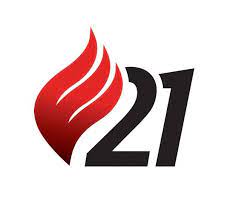Event Type
Papers Read
Start Date
3-6-2019 9:45 AM
End Date
3-6-2019 10:30 AM
Description
When Western societies talk about development, they generally mean urbanization, capitalist, economic systems, new technology, and globalization. Development and underdevelopment become two opposite poles. Development implied reproducing the conditions of the central nations toward the Third World. In this sense, the idea of development becomes a sociocultural concept that not only signifies the difference between two parties but at the time creates a dynamic of the submission of the one to the other. In geopolitical and sociocultural terms, we see the same concepts of domination and underdevelopment applied to indigenous people groups. The geopolitical position of the smaller nations within the larger nation-state is one of inferiority, and the broader community does not listen to the indigenous nation’s economic and sustainability proposals related to the environment or to the domination of sociocultural conditions. All of this leads us to realize that if our domination is sociocultural in nature, so is the criteria we use for determining what is good/better/best in life—which indicates the entirety of our knowledge.
The world needs to take the knowledge bases—the wisdom—of indigenous people groups as valuable contributions to humanity; not merely as part of the current fashionable trend to include those traditionally discriminated against but rather as legitimate models with hopeful proposals for the world. If we do not work on these proposals starting immediately and with serious intentionality, we will lose a great deal as a society. With the disappearance of indigenous languages, knowledge of medicinal plants is also lost, as well as other insights into humanity’s relationship with the earth. This loss affects everyone.
Study 1: “Our Jubilee mandate: development”
When Western societies talk about development, they generally mean urbanization, capitalist, economic systems, new technology, and globalization. Development and underdevelopment become two opposite poles. Development implied reproducing the conditions of the central nations toward the Third World. In this sense, the idea of development becomes a sociocultural concept that not only signifies the difference between two parties but at the time creates a dynamic of the submission of the one to the other. In geopolitical and sociocultural terms, we see the same concepts of domination and underdevelopment applied to indigenous people groups. The geopolitical position of the smaller nations within the larger nation-state is one of inferiority, and the broader community does not listen to the indigenous nation’s economic and sustainability proposals related to the environment or to the domination of sociocultural conditions. All of this leads us to realize that if our domination is sociocultural in nature, so is the criteria we use for determining what is good/better/best in life—which indicates the entirety of our knowledge.
The world needs to take the knowledge bases—the wisdom—of indigenous people groups as valuable contributions to humanity; not merely as part of the current fashionable trend to include those traditionally discriminated against but rather as legitimate models with hopeful proposals for the world. If we do not work on these proposals starting immediately and with serious intentionality, we will lose a great deal as a society. With the disappearance of indigenous languages, knowledge of medicinal plants is also lost, as well as other insights into humanity’s relationship with the earth. This loss affects everyone.





